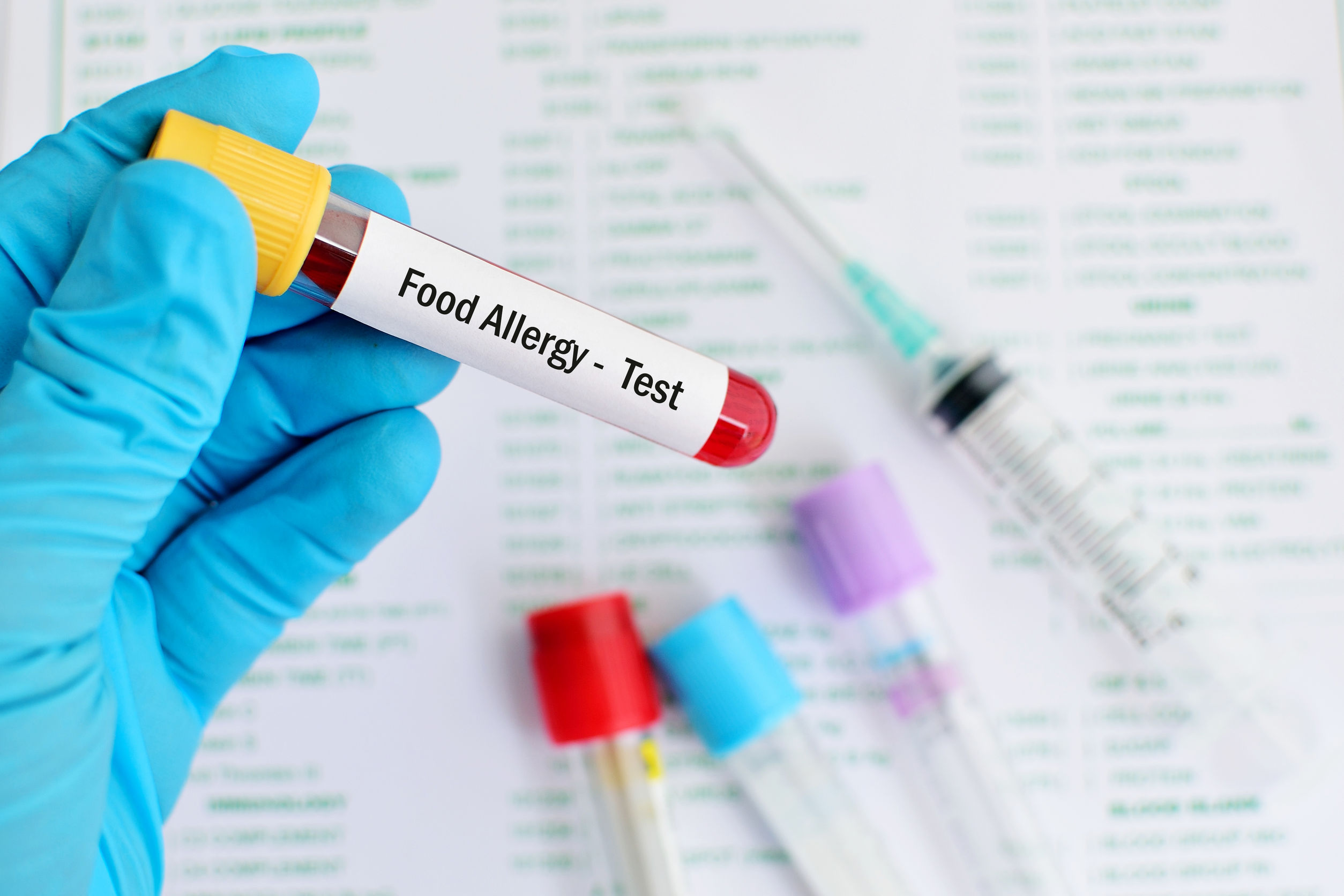
If you know people who have a nut allergy or dairy or gluten intolerance, you know how seriously they must avoid consuming the item they have a reaction to.
Why? Because consuming the food item they are allergic to can cause them to become extremely sick, or even die.
Clearly, food allergies are no joke, which is why they are often talked about.
But, what about food sensitivities?
According to foodallergy.org, over 15 million Americans have food allergies.
Yet, it’s not often that we talk about food sensitivities and how they can affect our whole-body health.
Even worse, most people don’t even realize they have a food sensitivity and treat symptoms like inflammation, headaches, or digestive issues as stand-alone health problems.
If you don’t correct a food sensitivity, your body is going to suffer from it in the long run.
So, how do you identify whether your health issues are associated with a food sensitivity or not?
Let’s start by identifying some key symptoms related to food allergies…
Food Sensitivity Symptom # 1 – Headaches

Food sensitivities that spur on headaches are caused by your body’s biochemistry.
While there hasn’t been a ton of research done as to why this occurs, doctors and scientists have been able to identify a few main food categories that this sensitivity is connected to.
If you suffer from regular headaches, it’s possible that one of the following food groups below is a contributing factors:
- Dairy products
- Corn
- Wheat
- Cane Sugar
- Yeast
- Eggs
- Citrus fruits
- Grains
Food Sensitivity Symptom #2 – Digestive Issues
When you eat a food that you have a sensitivity to, it’s not uncommon to experience some form of digestion discomfort.
Common issues you may experience include…
- Bloating.
- Gas.
- Cramps.
- Diarrhea.
- Upset stomach.
The reason these things occur is because your digestive system is struggling to process the food you’ve consumed.
In fact, your body may have an internal reaction that causes your gut to become inflamed in an effort to protect your body against the foods your intestines believe are allergens.
Food Sensitivity Symptom #3 – Skin Conditions

Food sensitivities can easily trigger autoimmune responses in the body that cause various types of skin conditions and rashes.
In fact, skin irritations such as…
- Eczema
- Hives
- Scaly,dry skin
…are often due to the consumption of dairy, nuts, wheat, soy, and eggs.
Many people try and treat these issues with allergy medications and skin creams. Sadly, because they occur due to food sensitivities, the medications and creams will only temporarily mask the symptoms.
Food Sensitivity Symptom #4 – Fatigue
If you’re always tired, yet live a healthy lifestyle and get plenty of sleep, it’s likely that a food sensitivity is at play.
How is this possible?
Easy…When you consume a food that your body is sensitive to, your immune system works hard to fight against it. This results in inflammation in your gut.
This inflammation can easily prevent your body from absorbing the nutrients you need to thrive, leaving you tired and lethargic all day long.
While a variety of foods can cause this type of reaction, the most common culprits are dairy, wheat, and nightshade plants.
Food Sensitivity Symptom #5 – Inflammation

As we touched on earlier, food sensitivities often cause inflammation in the gut as your autoimmune system works to protect your body.
However, what you might not know is that the inflammation doesn’t just stay in your gut. The inflammatory response also may occur in your joints causing you to experience aches and pains all over your body.
Many people attribute this inflammation to arthritis or overworking their joints and use anti-inflammatory meds to control their pain.
The problem: Most inflammation is caused by what you eat, so, once again, taking meds is only a temporary solution to the problem.
How to Undoubtedly Determine If You Have a Food Sensitivity

Every day, thousands of people suffer from the symptoms we just discussed and have no idea that their problems are occurring due to food sensitivities.
Even worse, the medications used to treat inflammation, headaches, gut issues, and more, often do more harm than good to the person taking them.
If you’re suffering from one or all of the things mentioned above, I highly recommend you get tested for food allergies.
IMPORTANT: A conventional doctor’s office will not provide you with the test necessary to determine whether you have a food sensitivity or not. To ensure you’re getting the right type of test, I advise you to get in touch with our office.
At my practice, we test patients all the time to determine the underlying cause of their health issues–and it’s often surprising what we discover people have sensitivities to.
Once you go through testing and eliminate what you’re sensitive to, you can then adjust your diet in order to heal your body from the inside out.
In more cases than not, a few simple adjustments can eliminate the awful symptoms of food sensitivities and allow you to lead a healthy, happy life.
If you’d like more information on food sensitivity testing, I invite you to get in touch with our office. Click here to connect with us!


